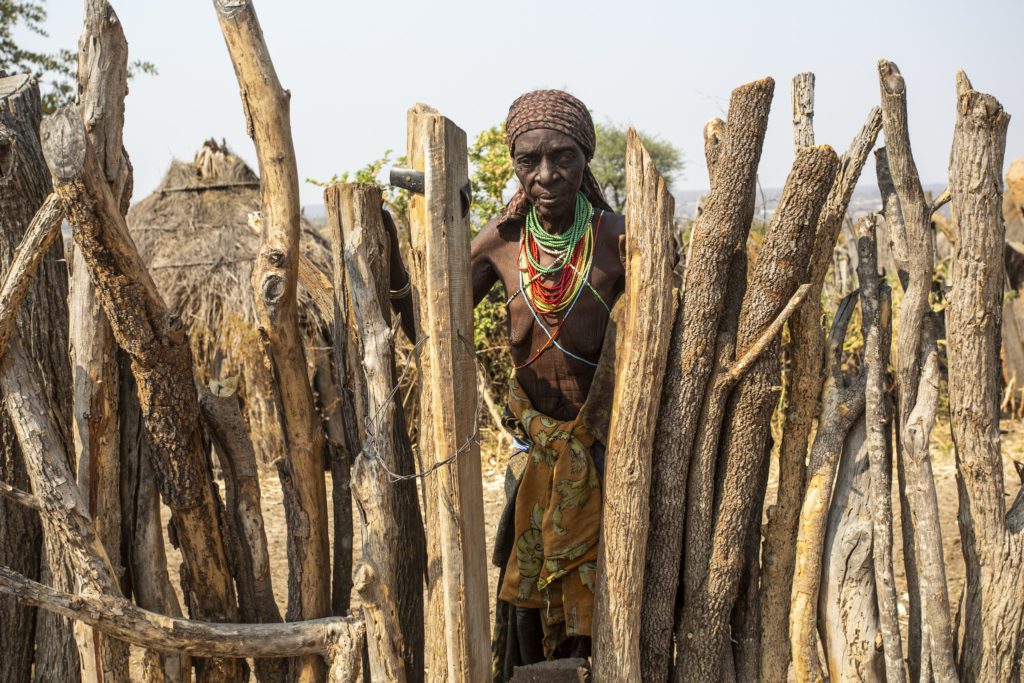From centuries of abundance to severe deprivation
In the Angola’s southern province of Huila lies the Gambos municipality, is the home of Tunda and Chimbolela, the customary grazing commons for the region’s pastoralists. Traditional cattle farmers from all the three provinces that comprise southern Angola – Cunene, Huila, and Namibe – can be found grazing their livestock here, particularly in dry and drought seasons. These traditional cattle farmers are part of two major ethnic groups: the Vanyaneke and the Ovaherero.
In Ngambwe language, Chimbolela is “the place where food goes bad in our possession because of abundance,” “the valley of miracles,” “the cradle of cattle” or “the mother of cattle,” which for generations was a sanctuary that shielded Vanyaneke and Ovaherero herders and their cattle from the cycles of drought.
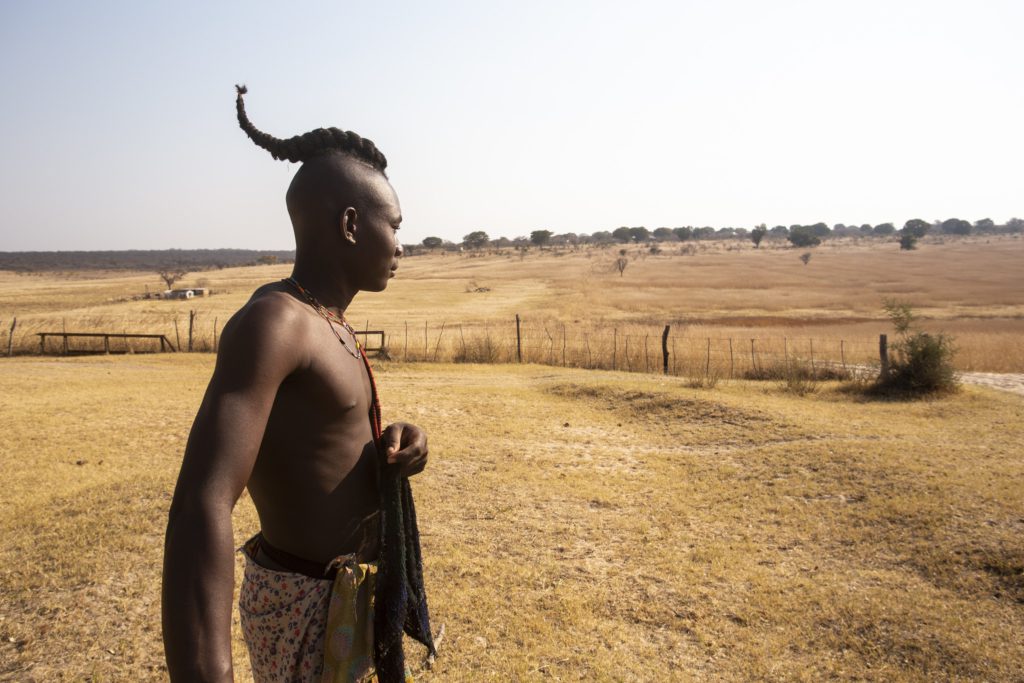
When Amnesty International visited this region, we found the pastoralist families struggling to produce food for themselves and their cattle. The ambiance in the homesteads felt sombre and gloomy as if death or some other tragedy had just struck. The households (kimbos) looked neglected and abandoned. Although there were children in the homesteads, there were no sounds of children playing and screaming, instead the children looked exhausted and subdued. Perhaps the most striking sight was that of the dogs and cattle which were so visibly thin and emaciated that one could count their ribs from a distance.
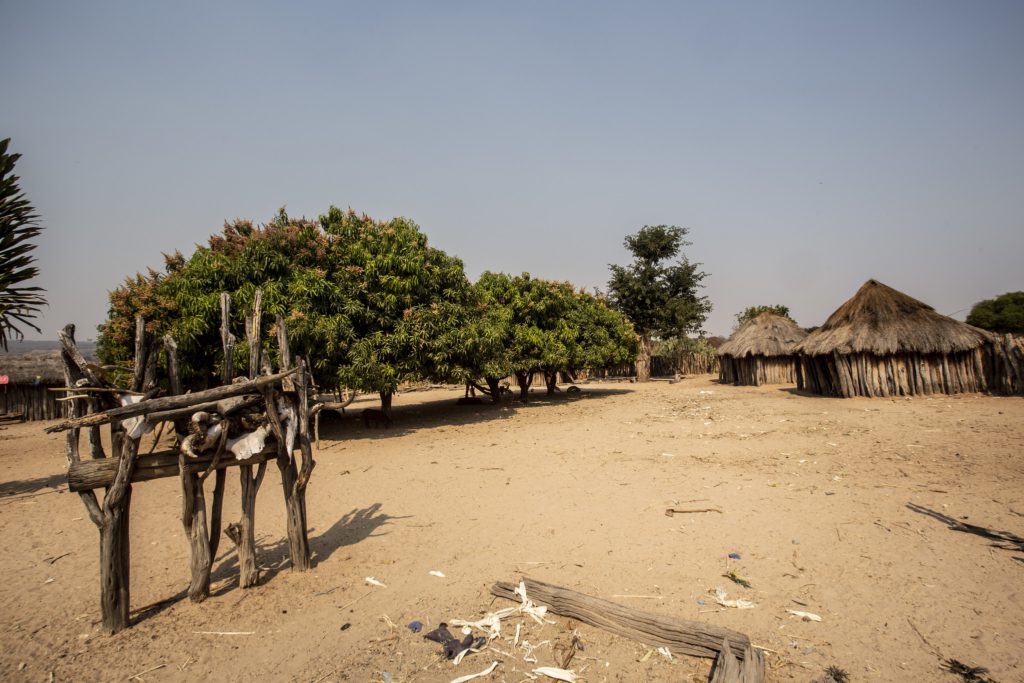
WHY IS HUNGER ON THE RISE?
The root of the problem
Given the climatic character of southern Angola – semiarid, dry, and low rainfall – this region is prone to cyclical droughts, and currently 2.3 million people are facing food insecurity in Cunene, Huila, and Namibe.
But in the case of the Gambos, hunger was not only a result of drought. Here, food insecurity had arisen from another more crucial element – 67% of communal grazing land, which once mitigated against the impact of drought, was allocated to commercial cattle farmers without any due process by the government.
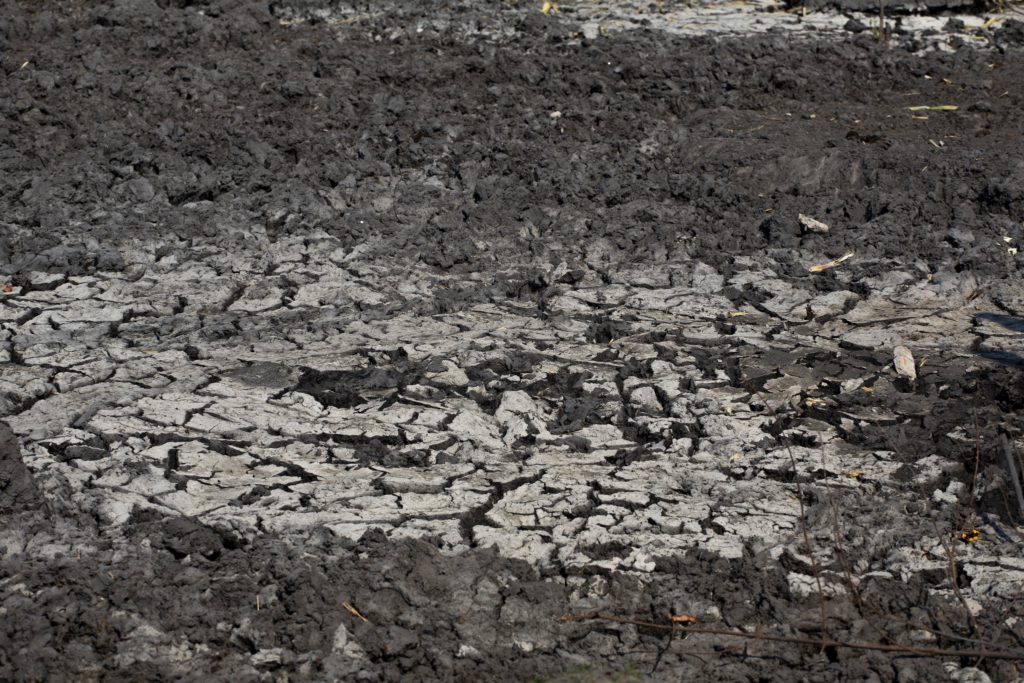
The occupation of the more fertile land historically used for grazing has undermined economic and social resilience of pastoralist communities, particularly their ability to produce food and survive droughts
The occupation of the more fertile land historically used for grazing has undermined economic and social resilience of pastoralist communities, particularly their ability to produce food and survive droughts
The milk region
Economic values of cattle
Like the rest of southern Angola, this region is colloquially known as Angola’s “milk region” because cattle rearing and milk production have been central to the economy and way of life of the people here.
The cattle are our mothers and our fathers because we depend on them for everything. It is just impossible to imagine our lives without the cattle. Like our parents, the cattle give us everything – life, food, health, school, clothing, transportation. Ask anyone, and they will tell you. The cattle are life to us.
A pastoralist in the Gambos
According to the pastoralist communities, the shortage of pasture following introduction of commercial cattle farming in which large swathes of land were fenced off, now forces them to drive their cattle for long distances to graze and drink water.
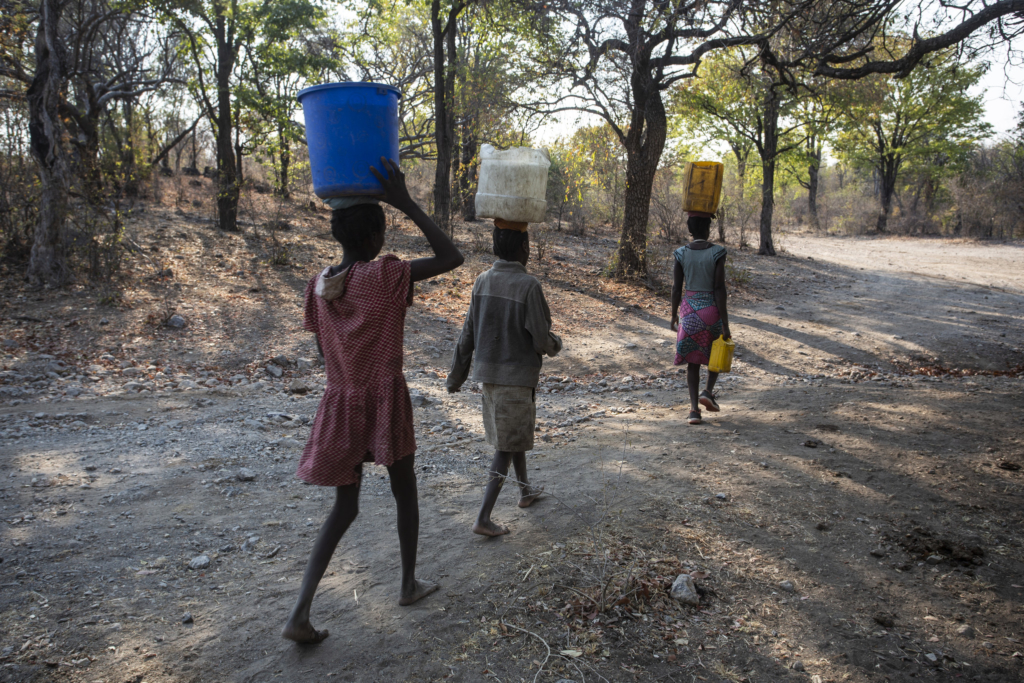
WHAT HAPPENS WHEN THE MILK DRIES UP?
Hunger and malnutrition in the Gambos
The insufficient pastures have led to cattle going hungry and shortage of milk, resulting in widespread hunger and malnourishment among the pastoralist communities. Both adults and children are increasingly thin, sickly, weak and tired. They told us that they now ate lombi (wild leaves) to stay alive.
We do not normally eat some of these leaves. Animals usually eat them. When we eat these leaves by themselves without porridge or rice we get sick. But now just to survive, we eat them. Lombi causes stomach ache and children get diarrhoea; they cry because they cannot handle it. But there is nothing else to eat. It is so tough on the children and the elderly. That grandmother you saw there is also having stomach pain because of lombi. She gets sick all the time she eats lombi.
A pastoralist told Amnesty International in the Gambos
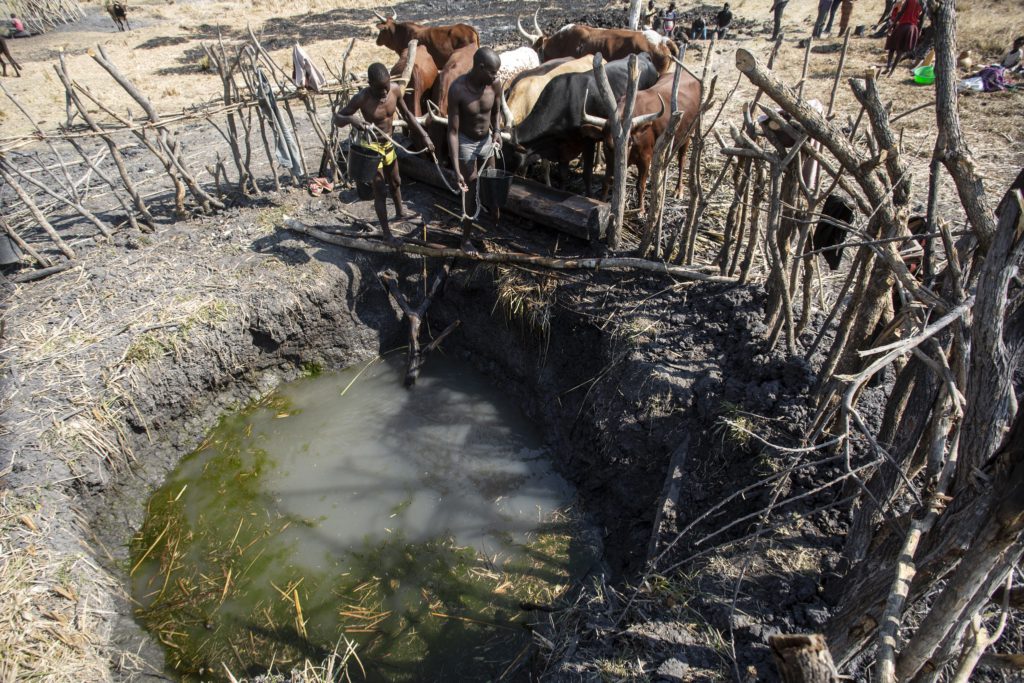
Walking long distances to survive
How are the communities copying with the drought?
The lack of food has had a big impact on women as they bear the burden of tilling the land, taking care of the sick as well as children. They now must travel long distances (about 10km) to Chiange to sell firewood so that they can buy food.
WHAT DOES THE LAW SAY?
Failure to prevent land dispossession
The land seizures for commercial livestock farming in the Gambos represents the government’s failure to uphold its own laws, and international standards. The Angolan Land Law designates rural communal lands as non-grantable lands – that is, the government cannot expropriate them for the benefit of third parties without due diligence. The government may expropriate these lands exclusively for public, not private, benefit on condition of just compensation.
The Constitution and the Land Law require that mandatory consultations are carried out with the affected communities and interested parties when implementing any projects affecting access to land resources.
The Environmental Law imposes the requirement of environment and social impact assessment for all projects that impact the environment and social balance and harmony in order to determine the likelihood and the extent to which people will be negatively affected.
I am in my old age. I was born and raised here. I have always lived here. There was no consultation whatsoever. These farmers just came and took the land and fenced it off. Now we cannot use it. We cannot feed our cows in there. I do not remember any government people ever coming here.
said another pastoralist in the Gambos.

FAILURE TO PROTECT THE RIGHT TO FOOD
State Obligations
In failing to treat Tunda dos Gambos and Vale the Chimbolele as non-grantable communal grazing lands, and by enabling commercial ranchers to occupy the land, as well as in not providing any schemes to mitigate the impact of the commercial farming activities on the right to food, the Angolan government clearly failed in its international and regional obligations to protect the pastoralists’ right to food in the Gambos.
As a result, the living conditions among the pastoralists who rely on the Tunda dos Gambos and Valley de Chimbolela environment and ecosystem services have become increasingly precarious and unbearable; their right to food, right to livelihood and adequate living standards, and the right to cultural preservation have been negatively impacted.
